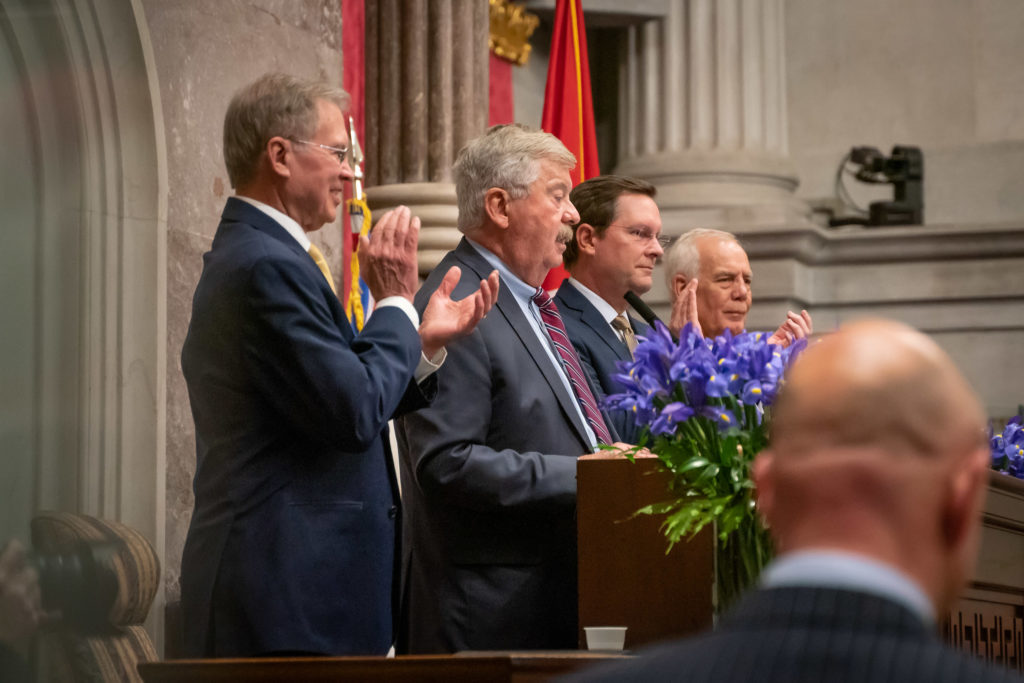
Leaders of the Tennessee Senate say they don’t support a Texas-style abortion ban advancing in the state House. The high-level resistance is likely to stop the measure for the year.
SB2582, which is known as HB2779 in the House, was amended this week and completely rewritten as a stricter version of the Texas law that has resulted in a steep drop in abortions. Private citizens can sue anyone who “aides or abets” an abortion for $10,000 or more. Tennessee’s measure would be an outright ban except for if the life of the mother is in danger, whereas Texas allows for abortions up to about six weeks without risk of a lawsuit.
“I don’t support it,” Senate Speaker Randy McNally told reporters at his weekly press conference Thursday. “And the reason is it will complicate the case that we already have that’s moving up to the Supreme Court.”
McNally says his resistance is mostly technical. He did not make an idealogical argument against the ban.
The legislature already passed a law in 2020 banning abortions after roughly six weeks with conventional enforcement. The law was immediately challenged in court and hasn’t gone into effect while the legal proceedings play out. But McNally says the hope is that the U.S. Supreme Court would come down in favor of Tennessee’s ban. Changing the state’s abortion law would upend that case, McNally says.
“We’d basically have to start over,” he says.
Some Republican leaders are also uneasy with the idea of deputizing private citizens to enforce an abortion ban, even though Texas courts have allowed the law to remain in effect.
“There is a concern about giving citizens a cause of action, which really will upend the the current tort system of law,” says Sen. Ken Yager, R-Kingston, who is the caucus chairman and a lawyer by trade. “I’ve looked at that, and that is a real concern.”
When the Senate speaker openly opposes a bill, usually it doesn’t get very far. The sponsors have not said whether they will drop the proposal, but a first hearing in the Senate has already been delayed by two weeks.
WPLN’s Blaise Gainey contributed to this report.

